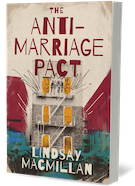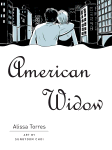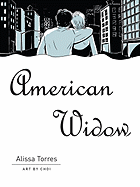 Deborah Copaken Kogan is the author of Shutterbabe, a memoir of her years as a war photographer, and the novel Between Here and April, to be published next Tuesday, October 7 by Algonquin Books. Her work has appeared in the New Yorker, the New York Times, O: The Oprah Magazine, Paris Match, Newsweek, Time, Elle, Géo, L'Express, PHOTO and on ABC News, Dateline NBC and CNN. She lives in New York with her husband and three children.
Deborah Copaken Kogan is the author of Shutterbabe, a memoir of her years as a war photographer, and the novel Between Here and April, to be published next Tuesday, October 7 by Algonquin Books. Her work has appeared in the New Yorker, the New York Times, O: The Oprah Magazine, Paris Match, Newsweek, Time, Elle, Géo, L'Express, PHOTO and on ABC News, Dateline NBC and CNN. She lives in New York with her husband and three children.
On your nightstand now:
I just cleaned up my nightstand before going on vacation last week, re-shelving the gems and lugging all the rejects downstairs to the lobby of our apartment building, which acts as an ad-hoc library except you get to steal the books. Those that were allowed to take up precious shelf space in our small home were Netherland by Joseph O'Neil, which I loved, The Line of Beauty by Alan Hollinghurst, which lived up to its name and then some, and The Accidental by Ali Smith, which had one of the more original narrative voices I've ever read. The books I removed from the nightstand to take with me on vacation were The Romantics by Galt Niederhoffer, which I mostly enjoyed, though I grew to loathe every character, and Three Junes by Julia Glass, a novel for which I literally ignored my children to keep reading. Oddly, sadly, I finished Glass's tale of a family reunited after the death of its patriarch the same day my father called to tell me he has pancreatic cancer and will be dead in a few months. Because of the synchronicity between fiction and fact, I find myself weirdly comforted by the fact that, unlike the three brothers in the novel, who meet up only after their father has passed away, my three sisters and I are about to embark on a two-week reunion of the Copaken clan on the Delaware shore, my dying father, age 67 and still full of passion and life, very much included.
Favorite book when you were a child:
Little House on the Prairie by Laura Ingalls Wilder. I loved the idea of a family of girls venturing outside its comfort zone.
Your top five authors:
Ian McEwan, for every book he's ever written but especially for The Comfort of Strangers and Atonement; Philip Roth, especially for The Counterlife, American Pastoral and Sabbath's Theater; Stendahl, for The Red and the Black; Leo Tolstoy, but only for Anna Karenina, one of my favorite books, not for War and Peace, a mountain whose summit I've been unable to scale, though not for lack of trying; and Virginia Woolf, for Mrs. Dalloway, one of the most perfect novels ever, and A Room of One's Own, which I blame for the small fortune I spend every month for the writing studio outside my home.
Book you've faked reading:
I've never faked reading a book--I'm the first to admit I'm not as well-read as I would like to be--but I have discussed books I've started but never finished such as Ulysses (although I did read its excellent ending, just not all--okay most--of the middle) and In Search of Lost Time by Marcel Proust, of which I've read only Swann's Way and a smattering, here and there, of the rest. In fact, I really need to read the rest of that book. I will, I promise.
Book you're an evangelist for:
The Counterlife by Philip Roth. Shut down your computer right now and go read it if you haven't. If you find the structure confusing, that's part of the experience. Just go with it.
Book you've bought for the cover:
Moo by Jane Smiley, in hardcover when it first came out in 1995. I'd loved A Thousand Acres, and I was looking for a book to read during my two-week break between my job at NBC and the due date of my first child. And yes, I'm sure my newly engorged breasts and the fear of what I would soon be doing with them played into the choice as well, but there was something about those three stark letters--that word!--against a white background I couldn't resist. Of course, my son came early, and then I became his cow, and poor Moo sat on the shelf, gathering dust.
Book that changed your life:
I know it's cliché to say this, but clichés don't get to be clichés by accident, so I'll just throw it out there and duck: The Catcher in the Rye by J.D. Salinger.
Favorite line from a book:
I'm not an underliner by nature. I like to let a book wash over me as a whole entity, and if line by line, the sentences are beautiful, so much the better. Michael Chabon is the best sentence-constructor I know; Leo Tolstoy the best scene-creator. That mushroom gathering scene at the end of Anna Karenina--has there ever been a better scene in all of literature? Since I just finished reading Netherland, one of its lines struck and stayed with me, not because it's my favorite line in a book, just because it contained so much and ended so abruptly. Here it is: "Whether it was the alcohol or the unusual texture of the evening (she said with mock bitterness, 'I finally feel like I've arrived in New York. It's only taken me four years'), Danielle was in a state of happy excitement, and it seemed only right that she should follow me into the elevator and into my apartment and that we should begin kissing and, very soon afterward, #$@*ing." Great line.
Book you most want to read again for the first time:
The Great Gatsby by F. Scott Fitzgerald. Best. Reading. Experience. Ever.






SHELFAWARENESS.0213.S4.DIFFICULTTOPICSWEBINAR.gif)





 One of the displays at
One of the displays at SHELFAWARENESS.0213.T3.DIFFICULTTOPICSWEBINAR.gif)


 Deborah Copaken Kogan is the author of Shutterbabe, a memoir of her years as a war photographer, and the novel Between Here and April, to be published next Tuesday, October 7 by Algonquin Books. Her work has appeared in the New Yorker, the New York Times, O: The Oprah Magazine, Paris Match, Newsweek, Time, Elle, Géo, L'Express, PHOTO and on ABC News, Dateline NBC and CNN. She lives in New York with her husband and three children.
Deborah Copaken Kogan is the author of Shutterbabe, a memoir of her years as a war photographer, and the novel Between Here and April, to be published next Tuesday, October 7 by Algonquin Books. Her work has appeared in the New Yorker, the New York Times, O: The Oprah Magazine, Paris Match, Newsweek, Time, Elle, Géo, L'Express, PHOTO and on ABC News, Dateline NBC and CNN. She lives in New York with her husband and three children. Alissa Torres' compelling new graphic memoir, American Widow, is her story of marrying a Colombian boy whose green card has run out and of their happy year together culminating in her pregnancy as he starts his new job on September 10 at the World Trade Center.
Alissa Torres' compelling new graphic memoir, American Widow, is her story of marrying a Colombian boy whose green card has run out and of their happy year together culminating in her pregnancy as he starts his new job on September 10 at the World Trade Center. 